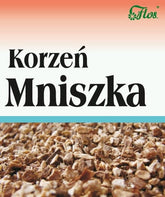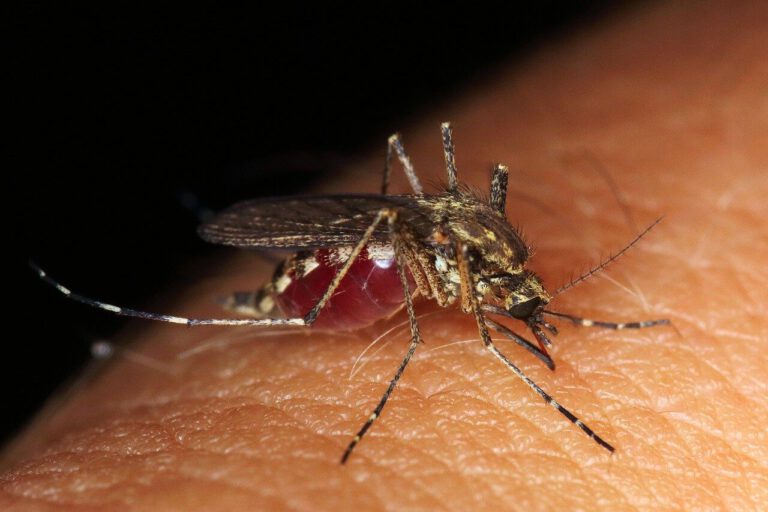How do I deal with mosquitoes? Natural ways.
Contents:
- repellents
- Plants and their oils are effective in fighting mosquitoes:
- Mosquito (commonly called Plectrantus, Latin Plectranthus Coleoides)
- Lavender (Latin: Lavandula officinalis)
- Pelargonium Graveolens – fragrant geranium and geranium oil derived from it
- Cinnamon
- Cloves and clove oil
- Eucalyptus and eucalyptus oil
- Catnip
- Herbs
Because we want to protect the environment, we look for natural and simple solutions to everyday situations. Mosquitoes that disturb your restful night's sleep are one of those cases where we want a quick solution, but also want to avoid the use of invasive chemicals. In this article, I present several plants and their derived oils that can help in dealing with these persistent creatures.
Let’s start by explaining one of the most important concepts on the topic:
repellents
These are agents that repel pests physically or chemically. Ready-made products are available for sale in the form of sprays, foams, sticks, patches, or devices: electrofumigators (which plug directly into an electrical outlet) and insecticidal lamps. There are also well-known methods of protection against mosquitoes in the form of mosquito nets or aluminum foil. A repellent is one that repels at least 50% of the tested pest group—in our case, mosquitoes. Many factors can affect the effectiveness of products applied directly to the skin, including: the chemical structure of the substance used, the formulation (usable form), and physical properties—i.e., temperature, surface humidity and skin condition, the number of sweat glands, and the intensity of perspiration.
Synthetic repellents contain DEET—N,N-diethyl-3-methylbenzamide. According to European standards, pregnant women and children under 2 years of age should not use DEET products, and children between 2 and 12 years of age must also use it in limited quantities. Therefore, you can avoid products containing this substance and other potentially harmful substances, or consider natural ways to combat mosquitoes.
Plants and their oils are effective in fighting mosquitoes:
Mosquito (commonly called Plectrantus, Latin Plectranthus Coleoides)
The most common varieties of this plant have single, broadly ovate, light green leaves with a white tip, but there are also varieties with dark green leaves with a purple-black underside. Their odor is unpleasant to mosquitoes. Simply plant a few seedlings around your patio, and mosquitoes will avoid that area.
Lavender (Latin: Lavandula officinalis)
Newspapers and websites all write about this plant's properties as a mosquito repellent and, at the same time, a beautiful ornamental plant. This small plant with tiny silvery leaves and tiny purple flowers repels more than just mosquitoes. Its repellent properties have also been observed against moths and moths. Both the plant planted near the resting place and the oil sprayed there are effective against these pests, although their repellent properties are weak—only for about 30 minutes. In winter, you can use dried lavender varieties in the form of small bouquets placed in wardrobes or kitchen cabinets.
Tip: Essential oils can be used individually or in blends, with a base oil such as sunflower, jojoba, or sweet almond oil. The resulting blend should be sprayed into a room prone to mosquito infestation approximately every 30 minutes. For those who are lazy, I recommend oil-burning fireplaces.
Pelargonium Graveolens – fragrant geranium and geranium oil derived from it
This plant has numerous properties. It has analgesic, sedative, anti-inflammatory, choleretic, expectorant, and diuretic properties. It stimulates the immune and endocrine systems, regulates blood pressure, and relieves conditions associated with diabetes and menopause. What interests us today, however, is its anti-insect effect. Studies show that it even repels mosquitoes that transmit the malaria parasite. These properties are primarily due to two substances: citronellol and geraniol. Geraniol is also found in rose, ginger, orange, and lemon oils, but in smaller amounts. The scent of this substance is described as sweet, floral, rose-like with a hint of citrus. For this reason, these oils are widely used in the perfume industry. This substance repels mosquitoes, houseflies, and ticks. In addition, this scent guides honeybees to the hive or flower. At the same time, it is non-toxic and safe for mammals.
Tip: Mosquitoes breed in places with access to water—mosquitoes lay their eggs in water. To avoid bites, eliminate areas with standing water—ponds without fish, poorly drained flowerbeds, clogged pipes, etc.—in the immediate vicinity of resting areas.
Cinnamon
The oil extracted from cinnamon bark repels mosquitoes and prevents tick bites. It also has powerful antimicrobial properties.
Tip: Essential oils can be applied individually directly to the skin or combined with your favorite moisturizer. However, it's worth testing a small area of skin beforehand to see if a particular oil might cause an allergic reaction.
Cloves and clove oil
The scent of cloves is primarily associated with Christmas, but it's not only during this time of year that this plant is worth remembering. It repels various insects, including mosquitoes, midges, and lice. This is due to its eugenol content, which has a number of beneficial properties: antiseptic, anesthetic, natural preservative, antimicrobial—to name just a few. Just like on vacation, in summer it's also worth cutting an orange slice, pricking it with cloves, and then leaving this decoration on a saucer in your resting place.
Eucalyptus and eucalyptus oil
The most potent insecticidal substance in eucalyptus is citriodiol. This allows eucalyptus oil to repel mosquitoes (including Asian tiger mosquitoes), ticks, and midges. Citriodiol is considered the most powerful natural repellent. It has an extremely long-lasting repellent effect of up to 6-7 hours. It has no allergenic properties and is safe for pregnant women and children. This substance is also present, albeit in smaller amounts, in lemongrass oil.
Tip: Turpentine is a mosquito-attracting substance found in solvents, varnishes, and some hairsprays, among other things. Therefore, you can use it as bait by placing a saucer of turpentine far away from where you plan to rest.
Catnip
Our furry pets love it, and we should too, as it has insect-repellent properties. Furthermore, the oil extracted from it can be used as a relief from skin irritations, including insect bites. The biologically active substances found in this plant are nerol, geraniol, and citronellal.
Tip: A fragrance mixture can be made from oils of repellent plants, which, when heated in a fireplace with a radiant heater, provides targeted protection against insects.
Herbs
Both chefs and nutritionists recommend using herbs in cooking. In addition to diversifying the flavor of dishes, herbs can also be useful in other situations. Research shows that they repel insects and also have antibacterial and fungicidal properties. Basil and peppermint exhibit the strongest repellent properties (repelling for up to 1.5 hours, a stronger effect than geranium oil).
Tip: Spiders are the natural enemies of mosquitoes. Their webs catch mosquitoes, flies, and other insects, which then serve as food for the spiders. If we leave the spiders alone, they'll do the work for us. Most of them are harmless to humans and can help us.
Tip: Another enemy of insects are hedgehogs – small, gray birds with small beaks. Let's not disturb them and ensure they have a habitat by creating feeding stations for them.
Natural ways to get rid of mosquitoes include planting the plants mentioned in the article or spraying their oils indoors. The compounds they contain can provide a natural alternative to synthetic compounds. They are mosquito-repellent, have no negative impact on the environment, and can provide us with pleasant scents and aromatherapy effects.
THE PUBLISHER'S CHOICE
Dried plums 1 kg BIOGO
- €7,01
- €7,01
- Unit price
- / per
Dried White Mulberries 500 g ORGANIC
- €5,84
- €5,84
- Unit price
- / per
Almonds 1 kg BIOGO
- €11,69
- €11,69
- Unit price
- / per
Cranberries sweetened with apple juice organic 1 kg BIOGO
- €16,37
- €16,37
- Unit price
- / per
Dried dates 1 kg BIOGO
- €4,21
- €4,21
- Unit price
- / per
Unpeeled buckwheat groats 1 kg BIOGO
- €2,81
- €2,81
- Unit price
- / per
Walnuts 800 g BIOGO
- €8,65
- €8,65
- Unit price
- / per
Peeled sunflower seeds 1 kg BIOGO
- €3,04
- €3,04
- Unit price
- / per
PULLED ORGANIC SUNFLOWER SEEDS 1 KG BIOGO
- €4,44
- €4,44
- Unit price
- / per












































































































































